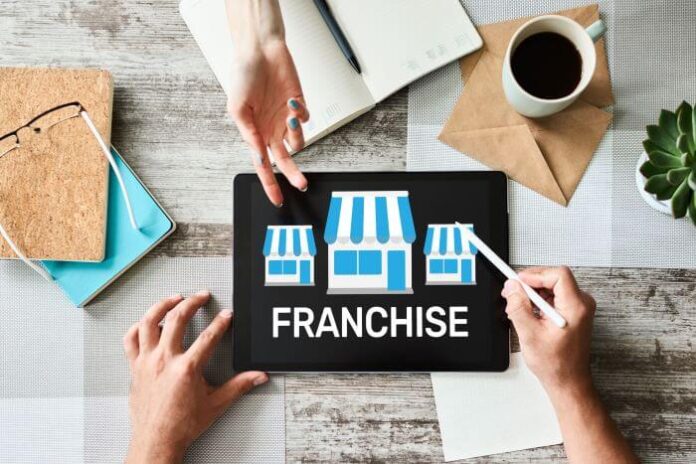For many aspiring entrepreneurs, starting a franchise is an excellent opportunity to run a business and be your own boss without the hassle of having to build everything from the start. A franchise comes with a business plan, branding, and a business operational system already in motion. Recent data reports that over three-quarters of a million franchise establishments exist in the US alone, which means more and more people are buying franchises.
But like anything, this venture has its own set of advantages and disadvantages. Managing a franchise will require time and hard work, just like starting your own business from scratch.
Statistics show that 8% to 12% of franchisees leave their businesses each year for various reasons, including financial ones. So, to avoid business failure, you’ll need to assess if a franchise is something you can do in the long term.
If you’re exploring the idea of running an urgent care business, continue reading to learn about the pros and cons of buying one.
Pros
1. You can skip the startup stage
The startup stage is among the most difficult parts of starting your own business. During this stage, you’ll experiment, make a business plan, perform market research, and create your product.
With a franchise, you can skip the startup stage since you’re already buying a business with an existing product and operating system that has been tried and proven to work. All you need to focus on is applying the system and selling the existing product to your target market.
But before that, ensure you perform market research and assess your area’s current product/service demand. That way, when you need to decide or search for the franchises you can buy, you’ll know what type of franchise will satisfy the needs of your target market.
For instance, if your community is filled with aspiring soccer players, franchising a kids’ soccer program may be a great idea to help these children cultivate their love for the sport. It’ll also be easier for you to grow your franchise business since you’re meeting the needs of your target customers.
2. You can have instant brand recognition
One of the best parts of buying a franchise that you’d never get from starting a business from scratch is instant brand recognition. Most franchisors won’t grant a franchise for their product/service unless they know they have a massive market of people who already know and trust them. Getting customers to recognize your business and trust your brand is a long and difficult process.
With a franchise, your brand may already be familiar and well-recognized by your target market, making it easier for you to gain their trust. For example, since McDonald’s is recognized worldwide, you won’t have a hard time marketing your McDonald’s franchise since most people already know their products.
3. You’ll receive extensive franchisor support
A major aspect of making a franchise successful is the massive support you get from the franchisor. Franchisors must prioritize supporting their franchisees and help them with operations, such as employee onboarding and training, financing, site selection and designing, and grand-opening events.
With their continuous support, franchisees like you will have an easier experience starting and managing the business. If you run into problems or have any concerns or questions, you can consult the franchisor or other franchisees and receive ongoing supervision and support.
Cons
1. You’ll need to abide by the franchise’s rules
A major drawback of running a franchise is having limited creative opportunities. Although you’ll be the boss and enjoy autonomy in business operations, you’ll still be required to abide by all the franchise’s regulations, system operations, policies, and directives. If you have any new ideas you’d like to try, they may not be approved by the franchisor.
2. You’ll deal with high startup costs
The cost of buying a franchise is generally high, ranging between USD$100,000 to USD$5 million. In some cases, a franchise may even cost higher than your own business.
Thankfully, some franchisors provide financial support for their franchisees, like loans or other financial assistance, to help them get a good start. If you think the franchise fee alone is out of your budget, consider finding a franchisor that offers financial assistance to their franchisees.
3. You’ll be continuously paying for royalty payments
Part of the contract between a franchisor and a franchisee is giving the franchisor a certain percentage of your yearly gross sales. So, besides the high startup costs, you’ll need to pay royalties for using the franchise’s brand name and system.
Furthermore, since franchisors spend thousands or even millions of dollars annually to promote their brand, they’ll ask their franchisees to contribute through monthly marketing fees. Franchise marketing fees are often calculated based on your monthly revenue.
There may still be other fees the franchisor may collect depending on your business and industry. When those fees add up, the costs can jeopardize your business revenue and expenses if not managed or properly.
Thus, it’s recommended to consult a lawyer to help you get a good deal. If you have any questions or clarifications regarding the legal franchising agreement, a lawyer can help you better understand the terms.
Conclusion
Just like starting any other business, the decision to buy a franchise also comes with some considerations. It’s important to be financially prepared and well-informed. Take your time to do more research, consult experienced franchisees and franchisors, or talk to friends and family so that you’ll know whether running a franchise is right for you.








